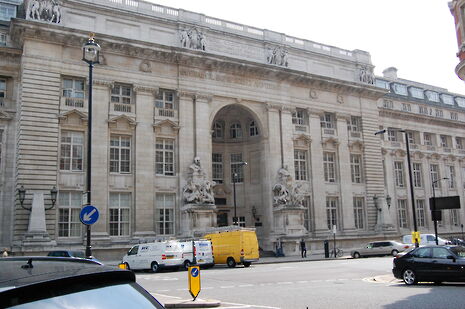Cambridge ranks among the top five universities in the world
Cambridge comes 5th in the Times Higher Education World Universities table

The University of Cambridge has been ranked fifth in the Times Higher Education World University Rankings (THE) 2014-15.
Cambridge rose by two places since last year in the THE rankings. Any pride will be bittersweet and short-lived, however, as Cambridge lost out to its main rival, the University of Oxford. Despite losing its two-year streak at second place, Oxford were victorious by only slipping one place to third.
Familiar American institutions comprised the top ten, with the California Institute of Technology taking first place, followed by Harvard University. Stanford University came in behind Oxford at fourth place, with Massachusetts Institute of Technology succeeding Cambridge in sixth.
The UK “continues to punch above its weight in the global rankings”, said the editor of the THE World University rankings, Phil Baty. The UK had more top 200 universities than any other country except the US, with which it remains in close competition. In the recent QS World University Rankings, British institutions made up half of the top ten alongside American universities.
Imperial College London continued to impress after it defeated Oxford in the recent QS World University Rankings by sharing second place with Cambridge. This year saw its first breakthrough into the THE top ten, as it was ranked joint ninth with Yale University.
Imperial’s continued success lends further weight to the ‘Impbridge’ theory, a term coined by the Independent to describe the correlation between Imperial’s rise up and Oxford’s slide down the two other most influential and widely observed university rankings: the QS World University Rankings and the Academic Ranking of World Universities (ARWU). It seems possible that the pattern established in the QS and ARWU rankings could be repeated in the THE tables.
Self-described as the “most sophisticated, balanced and widely respected academic rankings on the planet,” the THE World University Rankings were first published in 2004, in association with the company Thomson Reuters.
In the 2013-14 rankings, Cambridge achieved third and fifth place in the QS and ARWU rankings, respectively, making it the highest placed British university in both tables.
The top 200 universities represent the top 1 per cent of the world’s higher education institutions. Universities are assessed based on thirteen ‘indicators’ such as the quality of teaching, research, and citations in academic journals.
Some critics maintain, however, that the latter ‘indicator’ undermines non-English speaking institutions, as citations and publications in non-English languages are uncommon.
Its methodology, in the view of critics, is also heavily biased towards science-focused universities. This is similar to criticism of the QS and ARWU rankings as not giving enough weight to humanities and arts.
Ross Williams, of the Melbourne Institute, stated that THE’s procedures would favour more focused “science-based institutions with relatively few undergraduates” at the expense of institutions with more comprehensive programmes and undergraduates.
Phil Baty, editor of the THE World University Rankings, claimed the rankings do not privilege any one style or nationality of university; “Of course, excellent universities come in many different shapes and sizes, there is certainly no single model of excellence, and the THE World University Rankings are carefully designed to capture excellence in teaching and research against a university’s own mission and its own unique profile.”
 News / Uni Scout and Guide Club affirms trans inclusion 12 December 2025
News / Uni Scout and Guide Club affirms trans inclusion 12 December 2025 News / Cambridge Vet School gets lifeline year to stay accredited28 November 2025
News / Cambridge Vet School gets lifeline year to stay accredited28 November 2025 Science / Did your ex trip on King’s Parade? The science behind the ‘ick’12 December 2025
Science / Did your ex trip on King’s Parade? The science behind the ‘ick’12 December 2025 News / Cambridge study finds students learn better with notes than AI13 December 2025
News / Cambridge study finds students learn better with notes than AI13 December 2025 News / Pembroke to convert listed office building into accom9 December 2025
News / Pembroke to convert listed office building into accom9 December 2025







